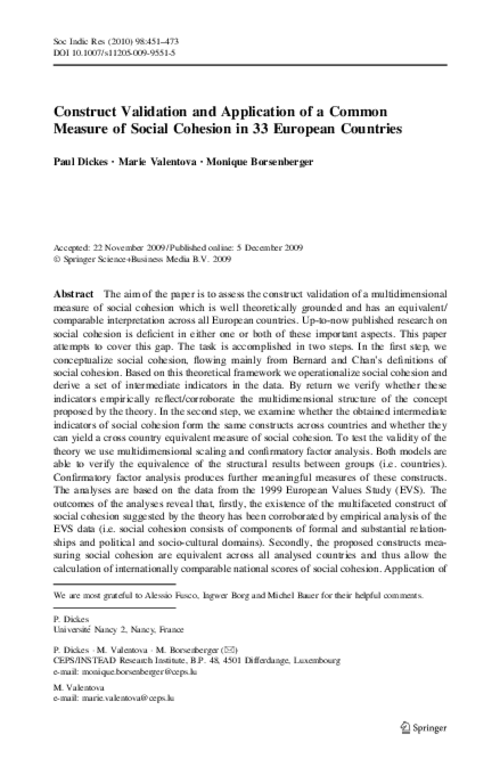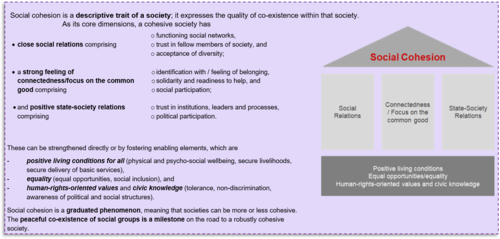Friends and Family: Social Cohesion in South Africa
Key facts
Shared values
Cooperation
Political institutions & governance
Development cooperation
Summary
This article considers the notion of social cohesion and reviews the degree to which South Africa after apartheid coheres as a society. We consider social cohesion as an affective bond between citizens. Therefore, our assessment must do more than review the political interests, alliances, ideology and discourses that give stability to the public domain. It also examines those institutions and relations that function chiefly on the basis of affect: friendships, relationships and the family. In this context, ‘social capital’ theory has significant appeal, despite its problems, by examining social cohesion in relation to the performance of state institutions. It suggests that a crisis in the social fabric will be felt, not so much in the political arena, but more broadly in the field of development. Employing this idea, we argue that the key measure of social cohesion in South Africa is the function of state bodies, rather than the stability of the political arena.

Explore the hub further



